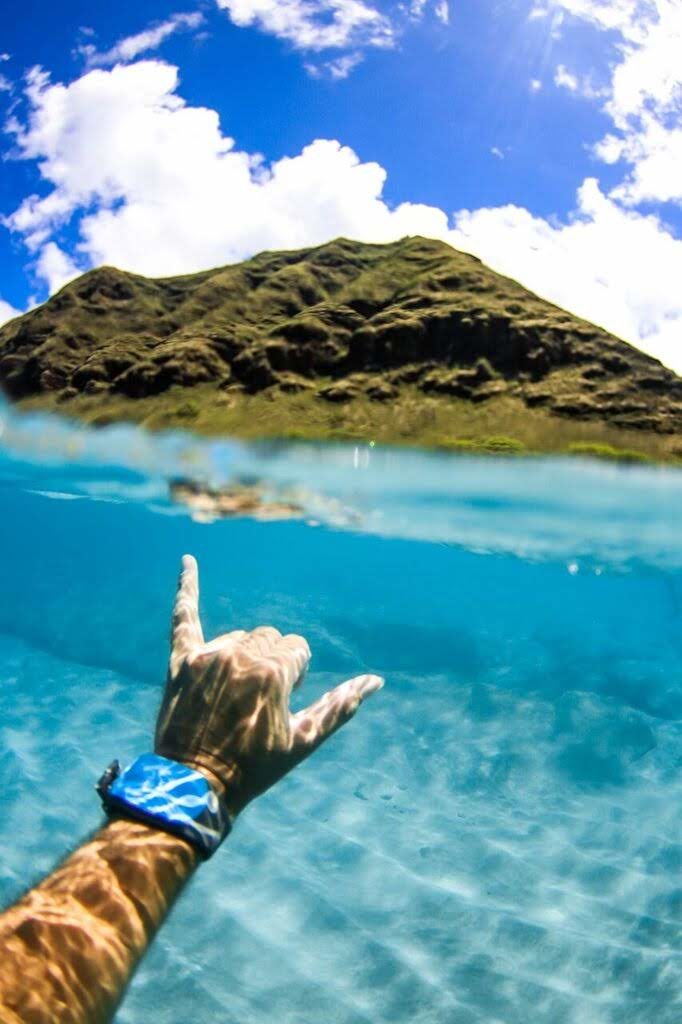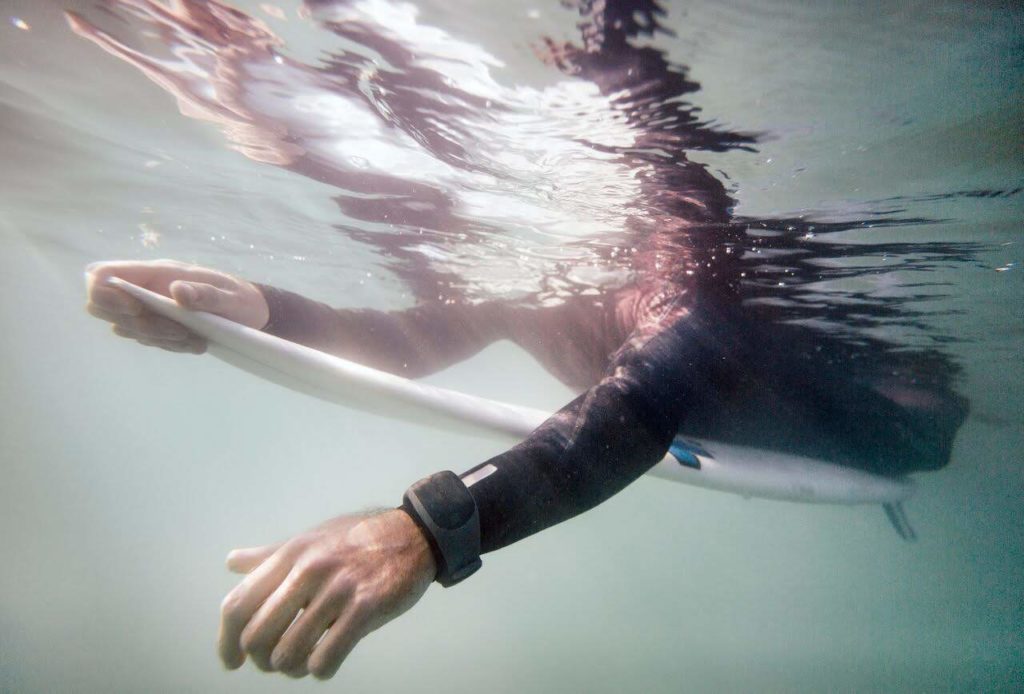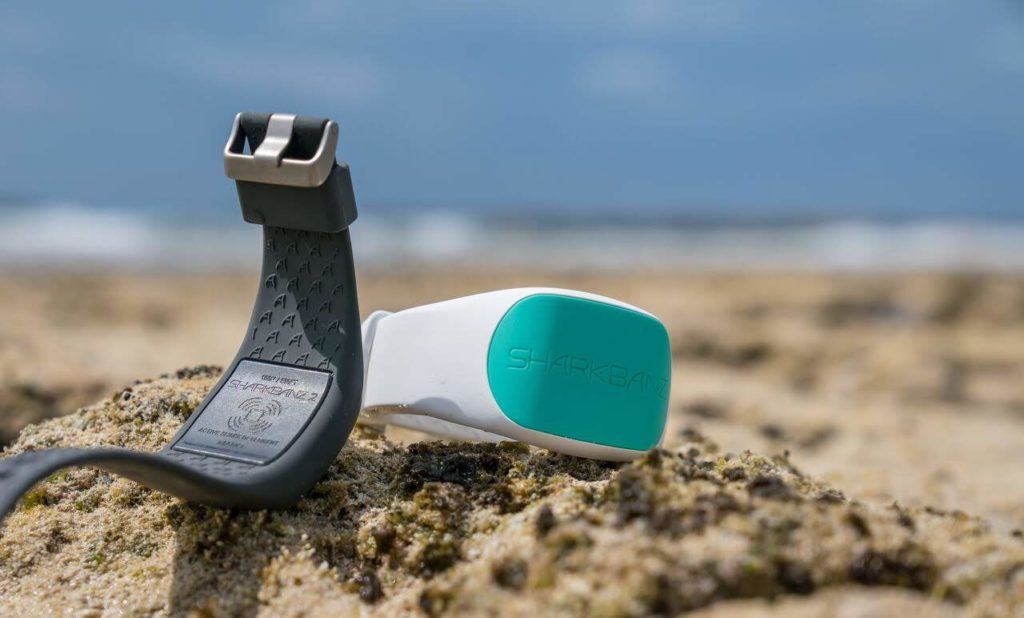Living on an island in the middle of the Pacific Ocean, we know sharks are out there. The ocean is their home, and when we choose to venture into their home, we know the possibilities. Being born and raised in Hawaii, the ocean is our playground and we learn to respect all ocean life. Whenever we choose to take a dip in the ocean, whether it’s swimming, diving, paddling or surfing, we are aware of the possibility that we could come into contact with a shark.
There’s been a few shark attacks recently here on the Big Island. It’s definitely a scary thought. I have never come into close contact with a shark, it’s definitely one of my fears and one of the reasons I always choose to stay close to shore. My husband on the other hand has come pretty close to a few sharks during his night diving sessions. When I read about Sharkbanz, I thought it was such a great idea. A great way to give yourself some extra protection from these powerful creatures of the sea.

Using patented magnetic technology that has been researched and tested by marine biologists on predatory shark species for over a decade, Sharkbanz takes advantage of a shark’s unique and powerful electrical sense (electroreception) to cause a highly unpleasant sensation that turns them away.
With Sharkbanz, you can dive, swim and surf. They’re designed to be worn on the wrist or ankle. Lightweight and comfortable, they do not affect ocean sport performance, so you can wear one or multiple and no batteries or charging is needed.

Ways you can avoid an attack:
- If you see a shark behaving aggressively, the best thing you can do is remain calm. Do not panic! This is counterintuitive, but likely the biggest factor in whether or not you may be bitten.
- Don’t wear jewelry that shines and reflects light. It can cause sharks to mistake you for a fish in murky water.
- If you see a bait ball, get out!
- If there are animal remains on the beach, like dead seals, fish or whales, there are more likely to be sharks in the water.
- Sharks hunt at dawn, dusk and at night because the low light makes it harder for prey to see them coming, and many fish are most active at dusk. Act accordingly.
- Be vigilant around areas with a steep drop-off as certain species like the great white will use the deep water to ambush potential prey.
- Bull sharks frequent rivermouths to feed, where the water is murky. Sharkbanz are an excellent way of alerting a bull shark that you are not prey before they take a bite. Recent research validated by a 3rd party University showed bull sharks were 85% more likely to avoid a baited dummy when Sharkbanz were worn.

What to do in case of an attack on you or another person:
- If an attack occurs, punch the shark in the nose or eyes, and use anything you have (surfboard, dive tank, etc) to put it between the shark and yourself.
- Seek help from others immediately. If no one is around, use your shirt, wetsuit, surf leash, or anything long enough to tie a tourniquet above the wound on yourself or the person attacked. If the incident occurs while surfing, put the person on a board.
- Stay in a group! This deters sharks from investigating further.
- When you get to the beach, keep the legs elevated by pointing their head toward the water.
- Apply pressure directly to the wound with a towel or shirt.
- First aid and CPR classes are super valuable for unexpected situations like a shark attack. Preparation is key and will increase your confidence in the ocean and in life.

Leave a Reply